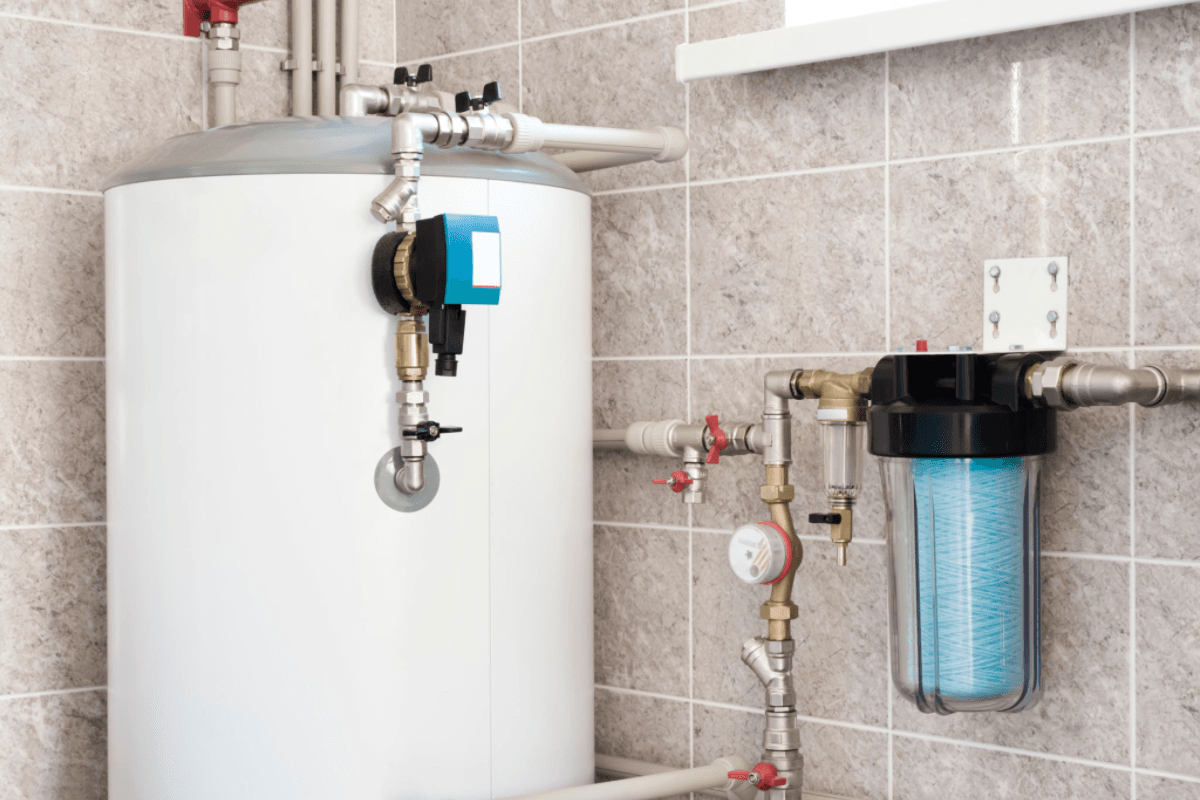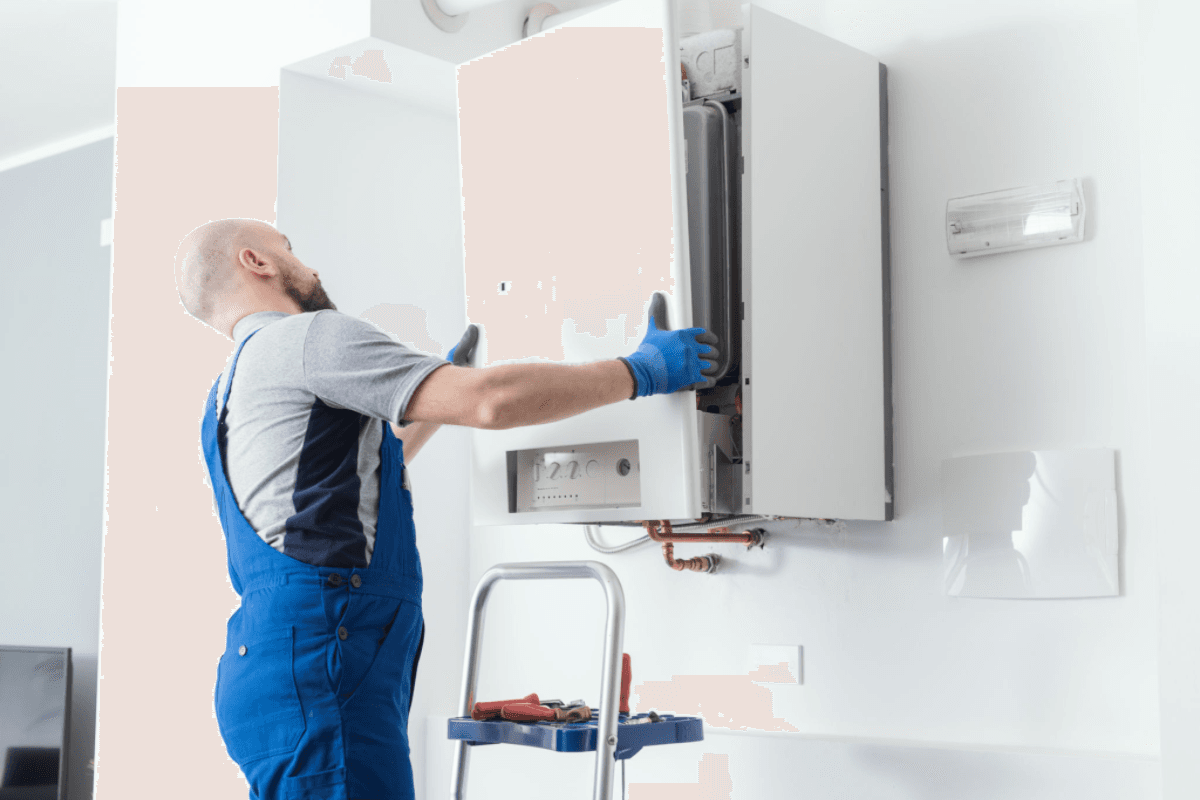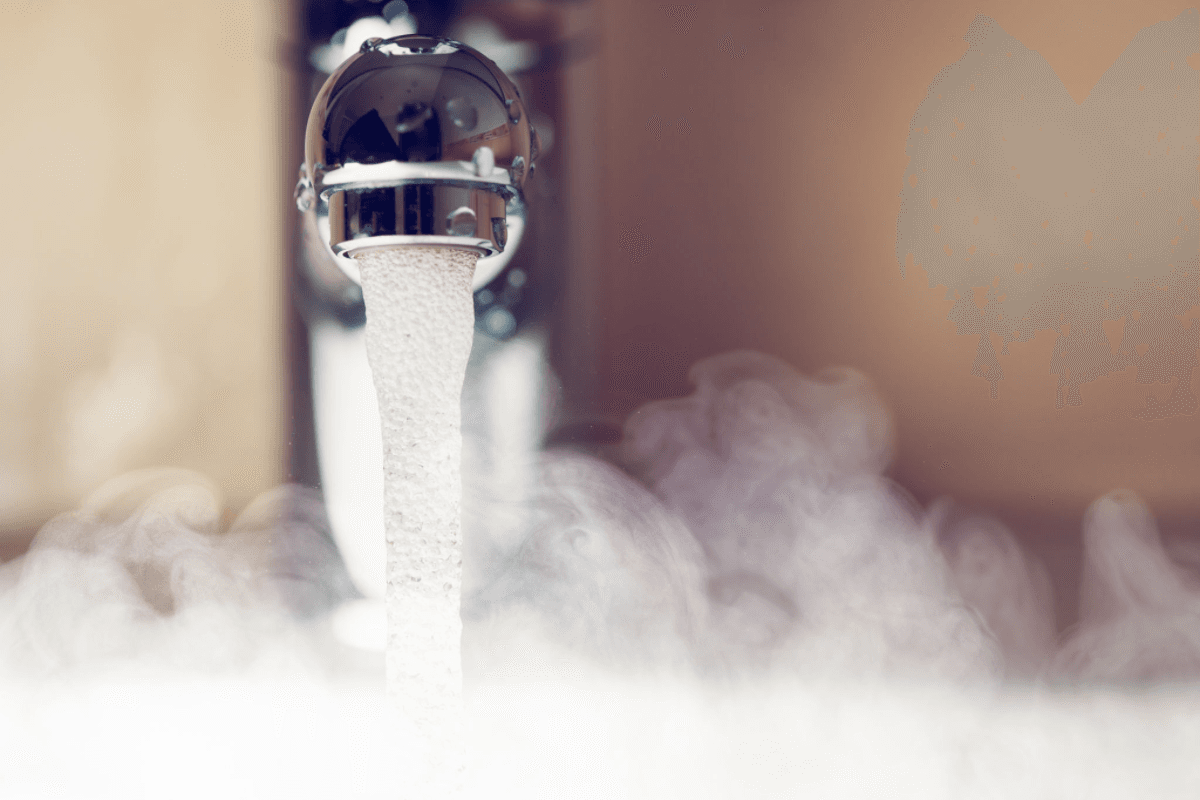Meet the unsung hero of your home—the water heater. Tucked away, it diligently provides warm showers and clean dishes until an unexpected glitch disrupts the daily routine. In this guide, presented by Service by Scott, your trusted plumbing partner in Woodville, Texas, we unveil the secrets to maintaining your water heater for optimal performance.
As a family-owned business with over 30 years of expertise, we understand the vital role of a reliable water heater. Beyond inconvenience, an inefficient unit can spike energy bills and leave an environmental footprint. This guide empowers you to preserve your water heater’s longevity, ensuring it operates flawlessly and economically.
Whether you’re a homeowner or a business seeking commercial water heater insights, our expert advice covers DIY tips, professional services, and everything in between. Join us on this journey to unlock the secrets of optimal water heater performance—because it’s time to elevate your expectations and ensure your water heater surpasses them.

Understanding Your Water Heater
To embark on the journey of effective water heater maintenance, it’s essential to delve into the intricacies of this household essential. By gaining a comprehensive understanding of your water heater, you equip yourself with the knowledge needed to ensure its longevity and peak performance.
Types of Water Heaters
Water heaters aren’t a one-size-fits-all appliance. There are distinct types catering to diverse needs. Traditional tank-style heaters store and heat water continuously, while tankless heaters provide hot water on demand, reducing energy consumption. Understanding the specific type installed in your home sets the stage for tailored maintenance practices, optimizing efficiency based on your heater’s design.
Basic Components Overview
Navigate the maintenance terrain with confidence by familiarizing yourself with the fundamental components of your water heater. From the thermostat regulating temperature to the heating element or burner assembly, each part plays a crucial role. Knowledge of the pressure relief valve and sacrificial anode rod is particularly important for preventive measures. The pressure relief valve safeguards against excess pressure, while the anode rod sacrifices itself to prevent corrosion, preserving the integrity of the tank.
Typical Lifespan
Every water heater has a lifespan, and being aware of this timeframe is key to proactive maintenance. Traditional tank-style heaters typically last 8-12 years, while tankless models can endure up to 20 years with proper care. Understanding where your water heater stands in its lifecycle empowers you to make informed decisions about maintenance and potential upgrades, ensuring sustained efficiency and performance.
Regular Inspections: The Key to Prevention
Regular inspections are the cornerstone of a proactive approach to water heater maintenance. By incorporating routine checks into your household regimen, you can identify potential issues before they escalate, ensuring the longevity and optimal performance of your water heater.
Visual Inspections
Begin your preventive journey with visual inspections. Examine the exterior of your water heater for any signs of leaks, rust, or corrosion. A visual scan can often reveal early indicators of problems, allowing you to address them promptly before they compromise the functionality of your unit.
Temperature and Pressure Relief Valve Checks
The temperature and pressure relief (TPR) valve is a crucial safety component. Regularly test the TPR valve by lifting and releasing its lever to allow a burst of hot water into the drain tube. This action verifies that the valve is in working order, preventing the buildup of excess pressure inside the tank.
Anode Rod Inspection
The sacrificial anode rod plays a vital role in preventing corrosion within the water heater tank. Periodically check the condition of the anode rod, as its deterioration signifies that it has effectively protected the tank by sacrificing itself. If the rod is severely corroded, it’s time for a replacement to maintain the tank’s integrity.
Sediment Flushing
Over time, sediment can accumulate at the bottom of the tank, compromising heating efficiency. Regularly flush the tank to remove sediment and maintain optimal performance. This simple yet effective task enhances the heater’s energy efficiency, ensuring it operates at its peak capacity. Incorporate these inspections into your regular maintenance routine to fortify your water heater against potential issues and keep it running smoothly for years to come.
Remember, if you prefer a professional touch, Service by Scott offers comprehensive water heater inspections. Our experienced team can perform thorough assessments, addressing potential issues and providing expert solutions to keep your water heater in prime condition. Incorporate these inspections into your regular maintenance routine to fortify your water heater against potential issues and keep it running smoothly for years to come.
DIY Maintenance Tips
Empower yourself with the confidence to take an active role in preserving the performance of your water heater through these do-it-yourself (DIY) maintenance tips. By incorporating these straightforward tasks into your routine, you contribute to the longevity and efficiency of your water heater.
Adjusting the Temperature Setting
Fine-tuning your water heater’s temperature setting is a simple yet impactful DIY task. Lowering the temperature not only prevents scalding but also reduces energy consumption. Aim for a setting around 120 degrees Fahrenheit for an optimal balance between comfort and efficiency.
Testing the Pressure Relief Valve
Regularly checking the functionality of the pressure relief valve ensures your water heater’s safety. Lift and release the valve’s lever to allow a small amount of hot water to flow into the drain tube. If the valve operates smoothly, you can be confident in its ability to prevent excess pressure buildup in the tank.
Flushing the Tank
Sediment buildup is a common issue that can hinder your water heater’s efficiency. DIY flushing involves draining a few gallons of water from the tank to eliminate sediment. This process enhances heat transfer efficiency, ensuring your water heater operates at its best.
Draining Sediment Regularly
As sediment settles at the bottom of the tank, regular draining becomes a preventive measure. Attach a hose to the tank’s drain valve, allowing sediment to flow out with the water. This straightforward DIY task helps maintain your water heater’s efficiency, preventing potential issues down the line.
While these DIY tips are beneficial, consider the advantages of professional expertise. If you prefer a comprehensive assessment and maintenance service, Service by Scott is ready to assist. Our skilled professionals can ensure your water heater receives the attention it deserves, enhancing its performance and extending its lifespan.

Professional Maintenance Services
When it comes to ensuring the longevity and peak performance of your water heater, professional maintenance services play a pivotal role. Service by Scott, a trusted family-owned and operated plumbing company with over 30 years of experience in Woodville, Texas, offers comprehensive water heater maintenance services designed to exceed your expectations.
Importance of Professional Inspections
While DIY efforts are valuable, professional inspections bring a depth of expertise and thoroughness that ensures no potential issue goes unnoticed. Service by Scott’s skilled technicians can perform detailed assessments, identifying and addressing concerns that may escape the untrained eye. Professional inspections act as a proactive measure, preventing future complications and maintaining your water heater in optimal condition.
Scheduled Tune-Ups
Routine tune-ups are akin to a wellness check for your water heater. Service by Scott provides scheduled maintenance services, including inspections, adjustments, and component checks. These tune-ups not only enhance efficiency but also detect and address minor issues before they escalate, saving you from costly repairs down the line.
Tank Cleaning Services
Over time, sediment buildup can compromise your water heater’s efficiency. Service by Scott offers specialized tank cleaning services, ensuring the removal of sediment that could impede heat transfer. This meticulous cleaning contributes to improved performance and energy efficiency.
Anode Rod Replacement
The sacrificial anode rod plays a crucial role in preventing corrosion within the water heater tank. Service by Scott’s professionals can assess the condition of the anode rod during maintenance visits and recommend replacements when necessary, ensuring the continued protection of your water heater.
Opting for professional maintenance services not only guarantees a comprehensive inspection but also allows for expert interventions tailored to your water heater’s specific needs. Service by Scott stands ready to deliver unmatched expertise, ensuring your water heater receives the care it deserves for extended durability and efficient operation.
Troubleshooting Common Water Heater Issues
Navigating water heater issues can be daunting, especially for those unfamiliar with the intricacies of this essential appliance. Here’s a straightforward guide to help you identify common problems and their solutions, ensuring your water heater operates smoothly.
Problem: Strange Noises
Solution: If you hear rumbling, popping, or banging sounds, sediment buildup might be the culprit. Flushing the tank can eliminate sediment, restoring quiet operation.
Problem: Leaks and Drips
Solution: A leaking water heater demands swift attention. Inspect the pressure relief valve, drain valve, and connections for potential issues. If the problem persists, it’s advisable to seek professional assistance promptly.
Problem: Inconsistent Temperature
Solution: Inconsistent water temperature can stem from a faulty thermostat or a failing heating element. Adjusting the thermostat or replacing a faulty element can resolve this issue and ensure a consistent hot water supply.
Problem: Pilot Light Concerns
Solution: If the pilot light goes out frequently, check for drafts or a faulty thermocouple. Relighting the pilot or replacing a malfunctioning thermocouple can restore proper function.
By understanding these common water heater issues and their solutions, you empower yourself to address minor problems promptly. However, if troubleshooting becomes overwhelming or the issue persists, Service by Scott is ready to lend their expertise. Our professionals can efficiently identify and resolve water heater issues, ensuring your system operates seamlessly.

Signs Your Water Heater Needs Replacement
Recognizing when it’s time to bid farewell to your trusty water heater is crucial for maintaining a reliable and efficient home system. Keep an eye out for these signs, indicating that a replacement may be in order.
Age and Performance
As water heaters age, their efficiency tends to decline. If your unit is approaching or surpassing the manufacturer’s suggested lifespan (typically 8-12 years for traditional tanks), and you notice a decline in performance or increased energy bills, it might be time for an upgrade.
Frequent Repairs
If you find yourself calling for repairs more frequently, it could be a sign that your water heater is nearing the end of its serviceable life. The cost of multiple repairs may outweigh the benefits of investing in a new, more efficient unit.
Decline in Efficiency
An inefficient water heater may struggle to meet your hot water demands. If you’ve noticed a significant drop in hot water availability or if it takes longer than usual to heat up, it’s an indicator that your unit may need replacement.
Rust and Corrosion
Rust or corrosion on the exterior of your water heater or in the water itself is a clear signal of wear and tear. If left unaddressed, this can lead to leaks and other issues. Regular inspections can help spot these signs early on.
Leaks and Water Damage
Persistent leaks or water pooling around the base of your water heater indicate internal problems. These issues can lead to structural damage and mold growth. If you notice leaks, it’s crucial to consider replacing the unit promptly.
When these signs become apparent, consulting with professionals like Service by Scott is recommended. Our experienced team can assess your water heater’s condition and guide whether a replacement is the most cost-effective and efficient solution for your home.
Conclusion: Ensuring the Longevity of Your Water Heater
In the journey to maintain your water heater for optimal performance, we’ve explored the essential facets of understanding, inspecting, and maintaining this crucial household appliance. Armed with knowledge about your water heater’s type, components, and typical lifespan, you’re better equipped to make informed decisions about its care.
Regular inspections, both visual and technical, serve as the cornerstone of prevention, allowing you to identify and address potential issues before they escalate. The DIY maintenance tips provided empower you to take an active role in preserving your water heater’s efficiency, contributing to its longevity.
For those seeking a professional touch, Service by Scott stands ready to deliver comprehensive water heater maintenance services. From scheduled tune-ups and tank cleaning to expert troubleshooting and replacements, our team of skilled professionals brings over 30 years of experience to ensure your water heater operates seamlessly.
As you embark on the path to water heater longevity, remember that an ounce of prevention is worth a pound of cure. Whether you choose the hands-on approach or prefer the expertise of professionals, the key is proactive care. If you have any questions or concerns, or are ready to schedule a service, contact Service by Scott today. Secure the comfort and efficiency of your water heater with the trusted expertise of our family-owned and operated team.
FAQs
How often should I flush my water heater?
Flushing your water heater at least once a year is recommended. However, if you notice issues like sediment buildup or reduced efficiency, more frequent flushing may be necessary.
What is the ideal temperature setting for a water heater?
The recommended temperature setting for a water heater is around 120 degrees Fahrenheit. This balances comfort with energy efficiency while minimizing the risk of scalding.
When should I consider replacing my water heater?
Consider replacing your water heater if it’s approaching or surpassing the manufacturer’s suggested lifespan, typically 8-12 years for traditional tanks. Frequent repairs, a decline in efficiency, and visible signs of rust or corrosion are also indicators.
Can I perform maintenance on my tankless water heater myself?
While some basic maintenance tasks, like descaling, can be done by homeowners, it’s advisable to have a professional service for a thorough inspection and maintenance. Tankless water heaters benefit from expert care to ensure optimal performance.
Are there any warning signs that my water heater needs immediate attention?
Yes, signs such as sudden leaks, persistent strange noises, or a complete lack of hot water are red flags that warrant immediate attention. In these cases, contacting professionals like Service by Scott for prompt inspection and resolution is crucial.

